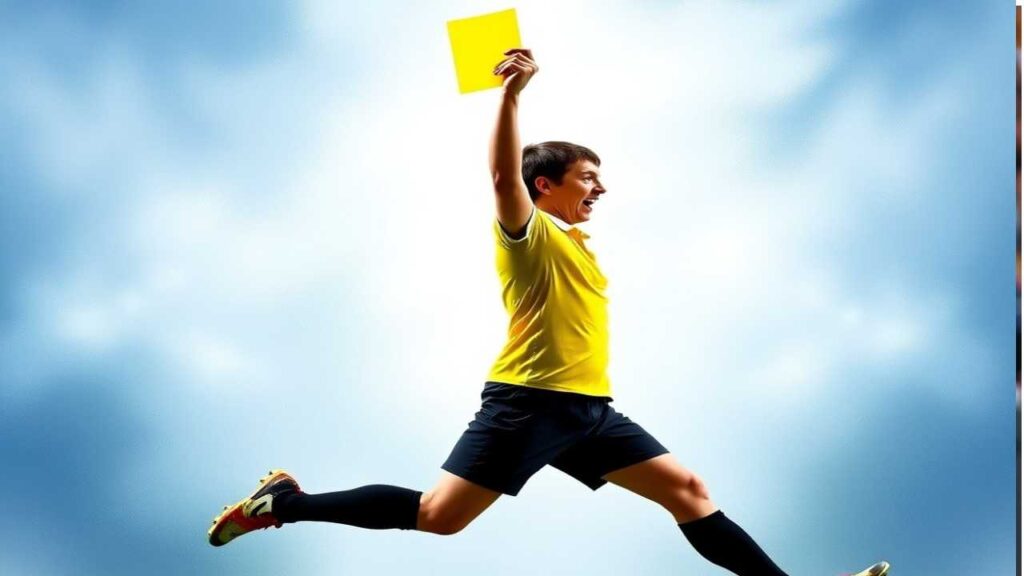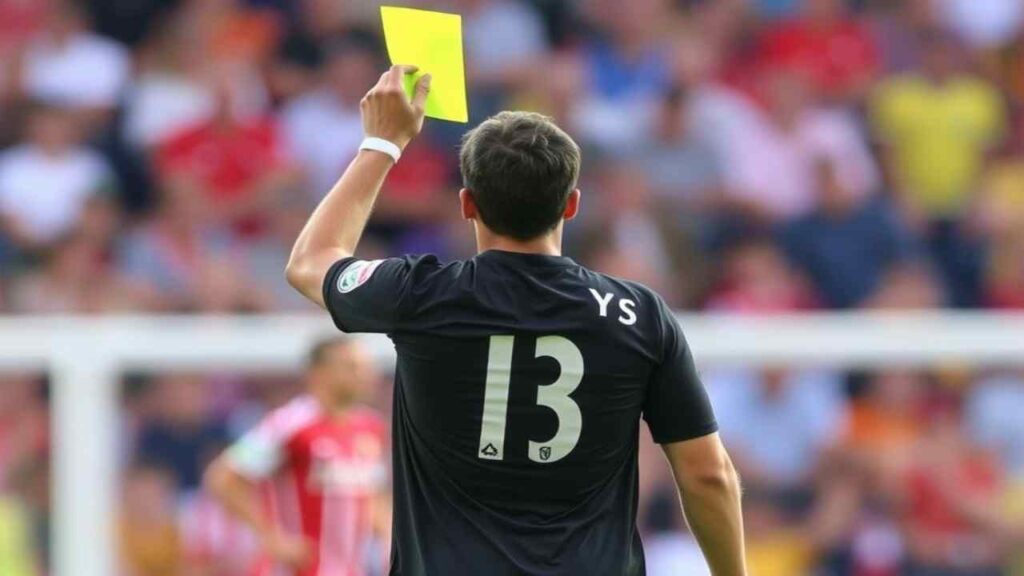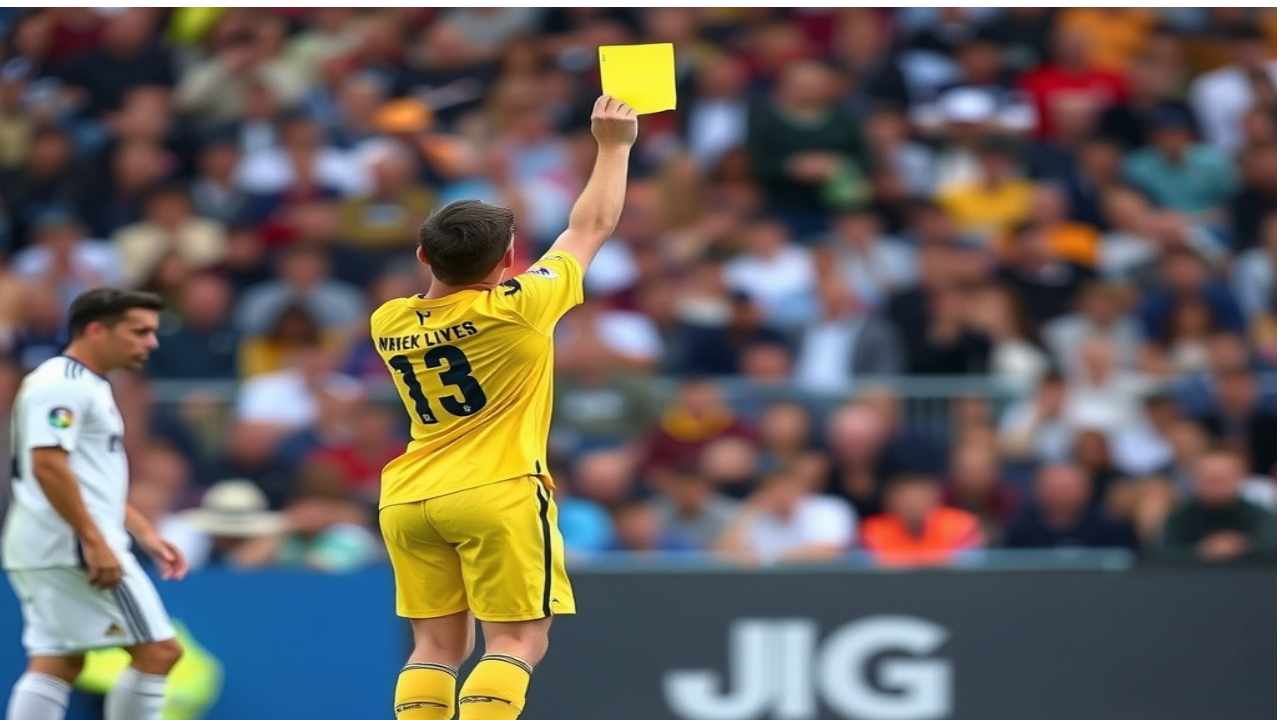In soccer, the yellow card is a crucial tool used by referees to maintain discipline and ensure the game is played moderately. Here’s a detailed explanation of what a yellow card signifies and its implications.
Understanding the Purpose of Yellow Cards
A yellow card serves as an official caution to a player who has committed a rule infraction. It warns players to modify their behavior to avoid more severe penalties.
When is a Yellow Card Issued?
Referees issue yellow cards for various offenses, including:

- Unsporting behavior, such as simulation or reckless challenges.
- Dissent by word or action towards referees or officials.
- Persistent infringement of the Laws of the Game.
- Delaying the restart of play.
- Failing to respect the required distance during corner kicks, free kicks, or throw-ins.
Consequences of Receiving a Yellow Card
- Immediate Impact: A player who receives a yellow card remains in the game but must be cautious to avoid a second yellow card, which leads to a red card and ejection from the match.
- Cumulative Effect: In tournaments, accumulating multiple yellow cards over several matches can result in suspension from future games.
How to Avoid Receiving a Yellow Card
Players can avoid yellow cards by:
- Maintaining control during tackles and avoiding reckless play.
- Showing respect to referees and opponents.
- Understanding and adhering to the rules of the game.
- Keeping the flow of the game smooth by restarting play promptly.
The Importance of Fair Play in Soccer
Fair play is integral to soccer’s spirit. Respecting opponents, teammates, and officials ensures the game remains enjoyable and competitive for everyone involved.
The Role of the Referee in Enforcing Rules
Referees are tasked with monitoring the game and enforcing the rules. They use yellow cards to manage player conduct and maintain the integrity of the match.
Frequently Asked Questions
1. Can a yellow card be overturned or rescinded after a match?
Yes, in some situations, governing bodies or competition committees may review a yellow card post-match. If it is found that the card was issued in error or there were extenuating circumstances, it may be rescinded. However, this process depends on the rules of the specific league or tournament.

2. How does a yellow card affect a player’s statistics?
A yellow card is recorded in a player’s disciplinary record and can impact their reputation as well as their standing in fair play awards. In some leagues, an accumulation of yellow cards over a season can lead to fines or suspensions.
3. What happens if a referee makes a mistake in issuing a yellow card?
If a mistake is made, stringent guidelines are followed to rectify the error. This might involve reviewing video footage, consulting other officials, or appealing to pertinent football authorities who are responsible for disciplinary actions.
4. Are there any benefits to receiving a yellow card strategically?
While intentionally earning a yellow card is generally discouraged and considered unsporting, there are rare tactical scenarios where a player might deliberately take a yellow card, such as stopping a dangerous counterattack. However, players should weigh the risks, as receiving multiple cards can lead to suspensions.
5. Do yellow cards carry over from league matches to international matches?
Typically, yellow cards from domestic leagues do not carry over to international competitions or vice versa. Each tournament or league maintains its disciplinary record, but this rule can vary with specific competition regulations.
summary
A yellow card is an essential part of soccer’s disciplinary system, and it is used to caution players and promote fair play. Understanding when and why a yellow card is issued helps players, coaches, and fans appreciate the importance of discipline in soccer.

